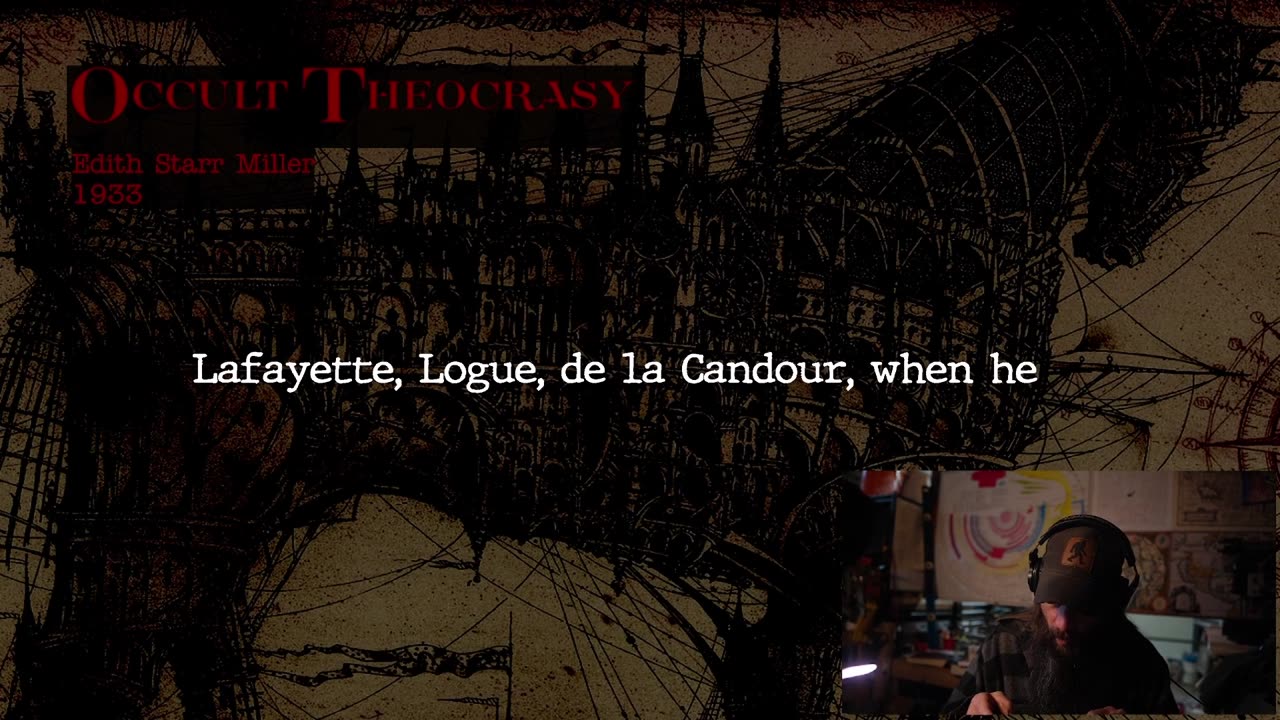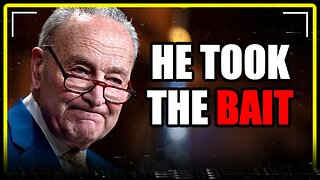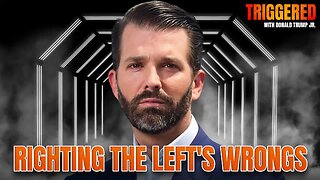Premium Only Content

Occult Theocrasy - Part II - Ch 53 - pg379
Occult Theocrasy - Part II - Ch 53 - pg379
This video discusses Chapter 53 of 'Occult Theocrasy,' focusing on the various clubs and lodges that emerged during the French Revolution, particularly the Jacobins. It details their founding, ideological goals, and significant figures involved in these organizations, with an emphasis on their impact on the revolution's progression and the links to wider social upheaval and conspiracies.
Key Points:
Founding of the Jacobin Club
Established in 1786 by influential figures including the Bishop of Atune and the Duke of Orleans, the Jacobin Club aimed to promote atheistic views and foster revolution in France. It evolved from a propaganda club and became a major force in the political landscape of the era.
Masonic Influence in Politics
The chapter outlines the significant role of Freemasons in the French Revolution, with a substantial percentage of the elected members of the National Assembly being part of these secret societies. Their involvement suggests a coordinated effort to manipulate the political climate of France for revolutionary purposes.
Financing the Revolution
Revolutionary activities required substantial funding, and the video notes how money was funneled through discreet channels to avoid compromising the English government. It explores the strategies employed to sustain revolutionary fervor both in France and abroad.
The Role of Clubs and Lodges
Various lodges and clubs, such as the Council of the Jacobins and the Club de la Pomegranate, are presented as central to orchestrating the revolution's events, with membership numbers reaching significant levels. Their clandestine meetings and decisions were pivotal in shaping the course of the revolution.
Aftermath and Legacy of the Revolution
The aftermath of the revolution left a power vacuum filled by the Committee of Public Safety, primarily controlled by Masonic leaders. The video highlights ongoing conspiracies traced back to this period and suggests a continuous influence of certain revolutionary ideals in modern social movements.
-
 3:07:28
3:07:28
Nikko Ortiz
4 hours agoArena Breakout Better Than Tarkov? - Rumble LIVE
32.6K1 -
 35:44
35:44
MattMorseTV
3 hours ago $6.03 earned🔴Schumer just WALKED INTO Trump's TRAP.🔴
31.2K47 -

BubbaMatt
12 hours agoMafia Definitive Edition Playthrough - Part 5
2.05K -
 51:25
51:25
Donald Trump Jr.
3 hours agoAmerica First in Action, All the Latest News | TRIGGERED Ep.278
110K106 -
 1:02:48
1:02:48
BonginoReport
5 hours agoChristianity Is Under Attack - Nightly Scroll w/ Hayley Caronia (Ep.144)
54.9K56 -
![Hollow Knight: Silksong - Steel Soul [Permadeath]](https://1a-1791.com/video/fwe2/75/s8/1/e/u/w/m/euwmz.0kob-small-Hollow-Knight-Silksong-Stee.jpg) LIVE
LIVE
JdaDelete
2 hours agoHollow Knight: Silksong - Steel Soul [Permadeath]
78 watching -
 LIVE
LIVE
FLRG
2 hours agoFLRG LIVE ROAD TO 2015 FOLLOWERS
39 watching -
 1:05:10
1:05:10
The Nick DiPaolo Show Channel
6 hours agoKirk Assassination Theories Abound! | The Nick Di Paolo Show #1795
50.8K35 -
 LIVE
LIVE
Focus_Up
2 hours agoGrinding resurgence ranked!! Playing with Subscribers!! Lets have some fun!!!
10 watching -
 1:37:47
1:37:47
Chrono
2 hours agoSplat-Tasks 2 - Splatoon but with more Rules
1.35K